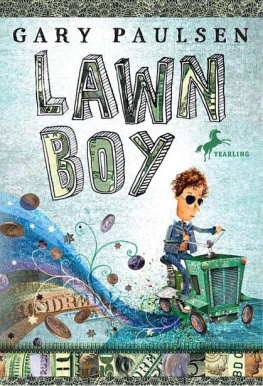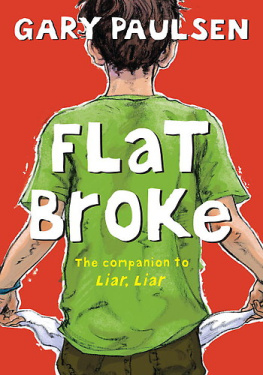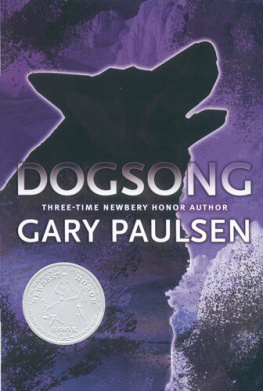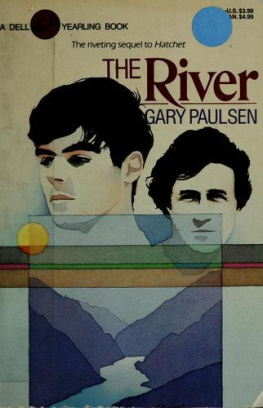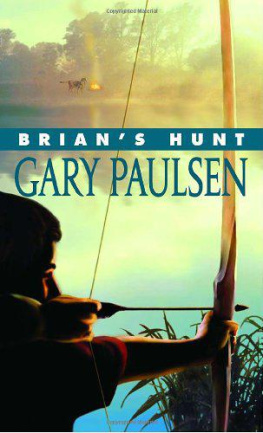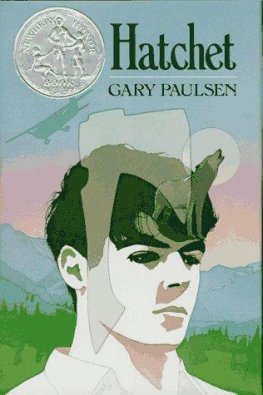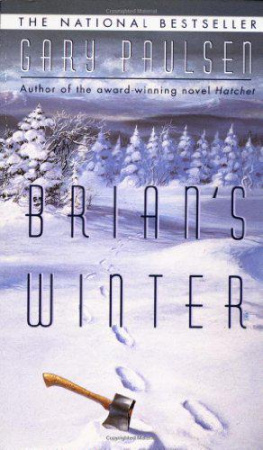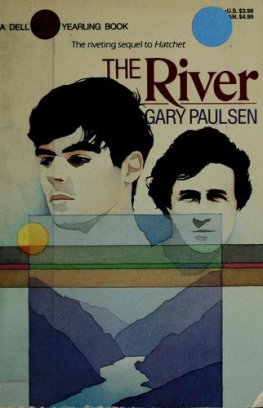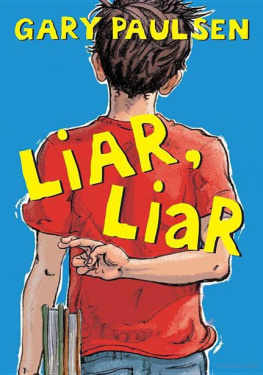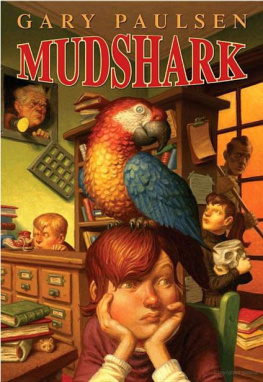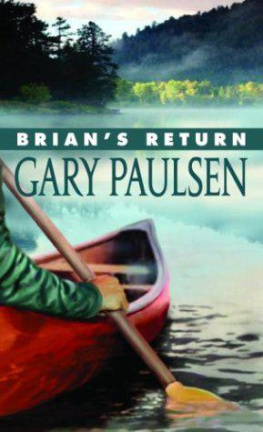Gary Paulsen - Lawn Boy
Here you can read online Gary Paulsen - Lawn Boy full text of the book (entire story) in english for free. Download pdf and epub, get meaning, cover and reviews about this ebook. year: 2007, publisher: Wendy Lamb Books, genre: Detective and thriller. Description of the work, (preface) as well as reviews are available. Best literature library LitArk.com created for fans of good reading and offers a wide selection of genres:
Romance novel
Science fiction
Adventure
Detective
Science
History
Home and family
Prose
Art
Politics
Computer
Non-fiction
Religion
Business
Children
Humor
Choose a favorite category and find really read worthwhile books. Enjoy immersion in the world of imagination, feel the emotions of the characters or learn something new for yourself, make an fascinating discovery.
- Book:Lawn Boy
- Author:
- Publisher:Wendy Lamb Books
- Genre:
- Year:2007
- Rating:3 / 5
- Favourites:Add to favourites
- Your mark:
- 60
- 1
- 2
- 3
- 4
- 5
Lawn Boy: summary, description and annotation
We offer to read an annotation, description, summary or preface (depends on what the author of the book "Lawn Boy" wrote himself). If you haven't found the necessary information about the book — write in the comments, we will try to find it.
Lawn Boy — read online for free the complete book (whole text) full work
Below is the text of the book, divided by pages. System saving the place of the last page read, allows you to conveniently read the book "Lawn Boy" online for free, without having to search again every time where you left off. Put a bookmark, and you can go to the page where you finished reading at any time.
Font size:
Interval:
Bookmark:
Gary Paulsen is the distinguished author of many critically acclaimed books for young people, including three Newbery Honor books: The Winter Room, Hatchet, and Dogsong. His novel The Haymeadow received the Western Writers of America Golden Spur Award. Among his Random House books are The Legend of Bass Reeves; The Amazing Life of Birds; The Time Hackers; Molly McGinty Has a Really Good Day; The Quilt (a companion to Alida's Song and The Cookcamp); The Glass Caf; How Angel Peterson Got His Name; Guts: The True Stories Behind Hatchet and the Brian Books; The Beet Fields; Soldier's Heart; Brian's Return, Brian's Winter, and Brian's Hunt (companions to Hatchet); Father Water, Mother Woods; and five books about Francis Tucket's adventures in the Old West. Gary Paulsen has also published fiction and nonfiction for adults, as well as picture books illustrated by his wife, the painter Ruth Wright Paulsen. Their most recent book is Canoe Days. The Paulsens live in New Mexico, in Alaska, and on the Pacific Ocean.

My grandmother is the kind of person who always thinks that no matter how bad things might seem, everything will always come out all right. Her hair could be on fire and she'd probably say, Well, at least we have light to read by.
She's the most positive person in the world, and amazing and fun to be around, but in a strange and happy way sometimes she seems to be about nine bricks shy of a full load.
You can say, You know, I think the Yankees will win the World Series again.
And she'll answer, Yes, but it's still nice to put carrots in stew for the flavor.
And you think that somewhere inside that brain maybe a screw came loose. Then you find out that the last time the Yankees won the World Series she made a stew and forgot to put carrots in, and blamed the Yankees (she'd never liked them anyway) when the stew tasted funny. She still doesn't like the Yankees.
It all makes sense if you wait long enough, she says.
So when I turned twelve she came to the house with an old riding mower in the back of her Toyota pickup.
Happy birthday, she said. It used to belong to your grandfather. He was always working on it. I thought you might like it.
A mower? Though we lived on the edge of what was termed an upper-middle-class neighborhood Eden Prairie, Minnesotaour house was small, a fixer-upper when my folks bought it four years ago. It had a yard the size of a postage stamp and the grass never seemed to grow enough to need mowing. It just sprouted, stopped, gave up and died. Over and over.
My father and I lifted the mower down from the truck bed. A lawn mower? I looked at Grandma. Thanks.
My bridge club is meeting on Thursday night, she said, getting back into her truck, which makes it hard to watch CSI since it's on Thursday too. Did you know that?
And she drove away before I could answer her, much less wait for the part where it made sense.
It appears you now have a lawn mower, my father said, smiling, as he walked back into the house. I don't know the connection with her bridge club either, although I'm sure there is one. She's your mom's mother, maybe your mom will know what that meant.
I looked at the mower. Very old, low, small. It looked like it only cut about a two-foot-wide area, and it was nothing like the fancy new machines. The seat was steel, without a pad, and the driver's feet went over the top of the motor to rest on two foot pedals. One was a brake, the other a clutch that you had to push down to get the mower moving. It steered with two levers, like a very small bulldozer, and looked more like a toy than a mower.
Okay. Since I was twelve, I didn't have much experience with motors. I've never even had a dirt bike or four-wheeler. I'm just not machine oriented.
My birthday present sat there. I tried pushing it toward our garage, but it didn't seem to want to move. Even turning around to put my back against it and push with my legswhich I thought might give me better leveragedidn't help; it still sat there.
So I studied it. On the left side of the motor was a small gas tank, and I unscrewed the top and looked in. Yep, gas. On top of the tank were two levers; the first was next to pictures of a rabbit and a turtle. Even though I'm not good with machines, I figured out that was the throttle and the pictures meant fast and slow. The other lever said ON-OFF. I pushed ON.
Nothing happened, of course. On the very top of the motor was a starting pull-rope. What the heck, why not? I gave it a jerk and the motor sputtered a little, popped once, then died. I pulled the rope again and the motor hesitated, popped, and then roared to life. I jumped back. No muffler.
Once when I was little, my grandmother, in her usual logic-defying fashion, answered my request for another cookie by saying that my grandfather had been a tinkerer. He was always puttering with things, taking them apart, putting them back together. When he was around nothing ever broke. Nothing ever dared to break.
Loud as the mower was, it still wasn't moving and the blade wasn't going around. I stood looking down at it.
This strange thing happened.
It spoke to me.
Well, not really. I'm not one of those woo-woo people or a wack job. At least I don't think I was. Maybe I am now.
Anyway, there was some message that came from the mower through the air and into my brain. A kind of warm, or maybe a settled feeling. Like I was supposed to be there and so was the mower. The two of us.
Like it was a friend. So all right, I know how that sounds too: We'll sit under a tree and talk to each other. Read poems about mowing. Totally wack.
But the feeling was there.
Next I found myself sitting on the mower, my feet on the pedals. I moved the throttle to the rabbit positionit had been on turtleand pushed the left pedal down, and the blade started whirring. The mower seemed to give a happy leap forward off the sidewalk and I was mowing the lawn.
Or dirt. As I said, we didn't really have much of a lawn. Dust and bits of dead grass flew everywhere and until I figured out the steering, the mailbox, my mother's flowers near the front step and a small bush were in danger.
But in a few minutes I got control of the thing and I sheared off what little grass there was.
The front lawn didn't take long, but before I was done the next-door neighbor came to the fence, attracted by the dust cloud. He waved me over.
I stopped in front of him, pulled the throttle back and killed the engine. The sudden silence was almost deafening. I stood up away from the mower, my ears humming, so I could hear him.
You mow lawns? he asked. How much?
And that was how it started.
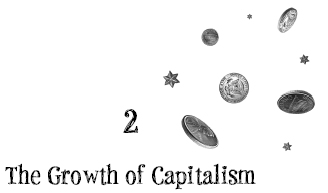
When it all began, it was simple.
Our neighbor's house had a larger yard than ours, with what looked like good grass. No difficult corners, just a big square with a large elm tree in the center.
I mowed it, and he gave me money.
Twenty dollars.
Figuring that I used almost all the gas in the tank, about a gallon, which cost three dollars, and not counting the wear and tear on the mower (I didn't know how to figure that out), I made seventeen dollars for my work. It took two hours so I made eight dollars and fifty cents an hour.
That, I was to learn later, was called capitalism.
Font size:
Interval:
Bookmark:
Similar books «Lawn Boy»
Look at similar books to Lawn Boy. We have selected literature similar in name and meaning in the hope of providing readers with more options to find new, interesting, not yet read works.
Discussion, reviews of the book Lawn Boy and just readers' own opinions. Leave your comments, write what you think about the work, its meaning or the main characters. Specify what exactly you liked and what you didn't like, and why you think so.

